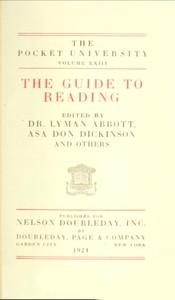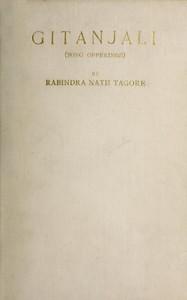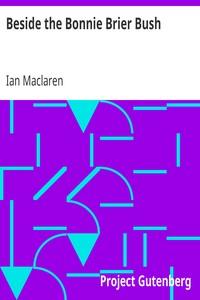Read this ebook for free! No credit card needed, absolutely nothing to pay.
Words: 29639 in 13 pages
This is an ebook sharing website. You can read the uploaded ebooks for free here. No credit cards needed, nothing to pay. If you want to own a digital copy of the ebook, or want to read offline with your favorite ebook-reader, then you can choose to buy and download the ebook.


: The Guide to Reading — the Pocket University Volume XXIII by Abbott Lyman Editor Dickinson Asa Don Editor - Books and reading United States
GENERAL INDEX OF TITLES
THE POCKET UNIVERSITY Books for Study and Reading BY LYMAN ABBOTT
There are three services which books may render in the home: they may be ornaments, tools, or friends.
I was told a few years ago the following story which is worth retelling as an illustration of the use of books as ornaments. A millionaire who had one house in the city, one in the mountains, and one in the South, wished to build a fourth house on the seashore. A house ought to have a library. Therefore this new house was to have a library. When the house was finished he found the library shelves had been made so shallow that they would not take books of an ordinary size. His architect proposed to change the bookshelves. The millionaire did not wish the change made, but told his architect to buy fine bindings of classical books and glue them into the shelves. The architect on making inquiries discovered that the bindings would cost more than slightly shop-worn editions of the books themselves. So the books were bought, cut in two from top to bottom about in the middle, one half thrown away, and the other half replaced upon the shelves that the handsome backs presented the same appearance they would have presented if the entire book had been there. Then the glass doors were locked, the key to the glass doors lost, and sofas and chairs and tables put against them. Thus the millionaire has his library furnished with handsome bindings and these I may add are quite adequate for all the use which he wishes to make of them.
This is a rather extreme case of the use of books as ornaments, but it illustrates in a bizarre way what is a not uncommon use. There is this to be said for that illiterate millionaire: well-bound books are excellent ornaments. No decoration with wall paper or fresco can make a parlor as attractive as it can be made with low bookshelves filled with works of standard authors and leaving room above for statuary, or pictures, or the inexpensive decoration of flowers picked from one's own garden. I am inclined to think that the most attractive parlor I have ever visited is that of a bookish friend whose walls are thus furnished with what not only delights the eye, but silently invites the mind to an inspiring companionship.
More important practically than their use as ornaments is the use of books as tools. Every professional man needs his special tools--the lawyer his law books, the doctor his medical books, the minister his theological treatises and his Biblical helps. I can always tell when I go into a clergyman's study by looking at his books whether he is living in the Twentieth Century or in the Eighteenth. Tools do not make the man, but they make his work and so show what the man is.
Every home ought to have some books that are tools and the children should be taught how to use them. There should be at least an atlas, a dictionary, and an encyclopaedia. If in the evening when the family talk about the war in the Balkans the father gets out the atlas and the children look to see where Roumania and Bulgaria and Greece and Constantinople and the Dardanelles are on the map, they will learn more of real geography in half an hour than they will learn in a week of school study concerning countries in which they have no interest. When there is reading aloud in the family circle, if every unfamiliar word is looked up in a dictionary, which should always lie easily accessible upon the table, they will get unconsciously a widening of their vocabulary and a knowledge of the use of English which will be an invaluable supplement to the work of their teacher of English in the school. As to cyclopaedias they are of all sizes from the little six- volumed cyclopaedia in the Everyman's Library to the twenty-nine volumed Encyclopaedia Britannica, and from the general cyclopaedia with more or less full information on every conceivable topic to the more distinctive family cyclopaedia which covers the life of the household. Where there are children in the family the cyclopaedia which covers the field they are most apt to be interested in--such as "The Library of Work & Play" or "The Guide Series" to biography, music, pictures, etc. --is the best one to begin with. After they have learned to go to it for information which they want, they will desire a more general cyclopaedia because their wants have increased and broadened.
So much for books as ornaments and as tools. Certainly not less important, if comparisons can be made I am inclined to say more important, is their usefulness as friends.
In Smith College this distinction is marked by the College authorities in an interesting and valuable manner. In the library building there is a room for study. It is furnished with a number of plain oak or walnut tables and with chairs which do not invite to repose. There are librarians present to get from the stacks the special books which the student needs. The room is barren of ornament. Each student is hard at work examining, comparing, collating. She is to be called on to-morrow in class to tell what she has learned, or next week to hand in a thesis the product of her study. All eyes are intent upon the allotted task; no one looks up to see you when you enter. In the same building is another room which I will call The Lounge, though I think it bears a different name. The books are upon shelves around the wall and all are within easy reach. Many of them are fine editions. A wood fire is burning in the great fireplace. The room is furnished with sofas and easy chairs. No one is at work. No one is talking. No! but they are listening--listening to authors whose voices have long since been silent in death.
In every home there ought to be books that are friends. In every day, at least in every week, there ought to be some time which can be spent in cultivating their friendship. This is reading, and reading is very different from study.
The student has been at work all the morning with his tools. He has been studying a question of Constitutional Law: What are the powers of the President of the United States? He has examined the Constitution; then Willoughby or Watson on the Constitution; then he turns to The Federalist; then perhaps to the Constitutional debates, or to the histories, such as Von Holst's Constitutional History of the United States, or to treatises, such as Bryce's American Commonwealth. He compares the different opinions, weighs them, deliberates, endeavors to reach a decision. Wearied with his morning pursuit of truth through a maze of conflicting theories, he puts his tools by and goes to dinner. In the evening he sits down in the same library for an hour with his friends. He selects his friend according to his mood. Macaulay carries him back across the centuries and he lives for an hour with The Puritans or with Dr. Samuel Johnson. Carlyle carries him unharmed for an hour through the exciting scenes of the French Revolution; or he chuckles over the caustic humor of Thackeray's semi-caricatures of English snobs. With Jonathan Swift as a guide he travels with Gulliver into no-man's land and visits Lilliput or Brobdingnag; or Oliver Goldsmith enables him to forget the strenuous life of America by taking him to "The Deserted Village." He joins Charles Lamb's friends, listens to the prose-poet's reveries on Dream-Children, then closes his eyes and falls into a reverie of his own childhood days; or he spends an hour with Tennyson, charmed by his always musical but not often virile verse, or with Browning, inspired by his always virile but often rugged verse, or with Milton or Dante, and forgets this world altogether, with its problems and perplexities, convoyed to another realm by these spiritual guides; or he turns to the autobiography of one of the great men of the past, telling of his achievements, revealing his doubts and difficulties, his self-conflicts and self-victories, and so inspiring the reader to make his own life sublime. Or one of the great scientists may interpret to him the wonders of nature and thrill him with the achievements of man in solving some of the riddles of the universe and winning successive mastery over its splendid forces.
It is true that no dead thing is equal to a living person. The one afternoon I spent in John G. Whittier's home, the one dinner I took with Professor Tyndall in his London home, the one half hour which Herbert Spencer gave to me at his Club, mean more to me than any equal time spent in reading the writings of either one of them. These occasions of personal fellowship abide in the memory as long as life lasts. This I say with emphasis that what I say next may not be misunderstood--that there is one respect in which the book is the best of possible friends. You do not need to decide beforehand what friend you will invite to spend the evening with you. When supper is over and you sit down by the evening lamp for your hour of companionship, you give your invitation according to your inclination at the time. And if you have made a mistake, and the friend you have invited is not the one you want to talk to, you can "shut him up" and not hurt his feelings. Remarkable is the friend who speaks only when you want to listen and can keep silence when you want silence. Who is there who has not been sometimes bored by a good friend who went on talking when you wanted to reflect on what he had already said? Who is there who has not had his patience well nigh exhausted at times by a friend whose enthusiasm for his theme appeared to be quite inexhaustible? A book never bores you because you can always lay it down before it becomes a bore.
Free books android app tbrJar TBR JAR Read Free books online gutenberg
More posts by @FreeBooks

: The Legends of Saint Patrick by De Vere Aubrey Morley Henry Author Of Introduction Etc - Patrick Saint 373?-463?


: Gitanjali by Tagore Rabindranath Yeats W B William Butler Author Of Introduction Etc - Indic poetry Translations into English; Tagore Rabindranath 1861-1941 Translations into English; Bengali poetry Translations into English; Prose poems Bengali Translatio





